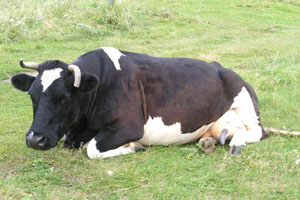A lawyer explains: Minimizing the risks of suspension of activities when handling by-products of animal husbandry in the context of the new article of the Code of Administrative Offenses of the Russian Federation
By-products of animal husbandry include manure, litter, bedding and effluents used in agricultural production.
In my opinion, the introduction of administrative liability in this area is completely logical. Legislation on by-products of livestock farming has become a response to the need of the agricultural sector to take into account the specifics of livestock farming in matters of handling manure and droppings. The allocation of a separate branch of legislation allows today to be guided by specific mechanisms for defining manure as a by-product of livestock farming or waste. The boundaries of competence between control in agriculture and environmental control have been established.
However, in the new sphere, order is also needed, which will be facilitated by the establishment of administrative responsibility.
Alexander Levikov, lawyer in the field of veterinary medicine and sanitary and epidemiological welfare.
The amounts of the fines introduced are generally not the largest for the livestock sector, for example, for legal entities the minimum fines start at 250 thousand rubles, and the maximum is limited to 600 thousand rubles. Fines for individual entrepreneurs and officials are much lower.
In my opinion, what is most noteworthy about the new law is the emphasis placed on the fact that violation of requirements for handling livestock by-products can lead to the emergence of epidemics and epizootics.
I believe that such an emphasis will lead to the fact that for the purposes of preventing epizootics and epidemics, in the presence of a real threat of their occurrence, the control body will often be forced to resort to initiating an administrative suspension of activity, since even Part 1 of Article 10.8.1 of the Code of Administrative Offenses of the Russian Federation provides for liability in the form of a fine or administrative suspension of activity for up to 90 days.
For example, in accordance with the current veterinary regulations, manure is a factor in the transmission of the pathogen of highly pathogenic avian influenza (hereinafter referred to as HPAI). Accordingly, violation of the rules for handling by-products of animal husbandry, which creates a threat of HPAI, can certainly become the basis for the supervisory authority to appeal to the COURT with an initiative for administrative suspension of activities to prevent an epizootic of HPAI.
Also, droppings and manure can be a source of salmonella, since farm animals and poultry are the main sources of salmonella infection. In accordance with the current sanitary rules for the prevention of infectious diseases, the most epidemically significant sources of the pathogen of salmonella infection are chickens, cattle and pigs. To avoid the threat of this epidemic, it is necessary to impeccably comply with the established rules for handling by-products of animal husbandry.
Based on the examples given, in order to avoid the threat of administrative suspension of activities when handling livestock by-products, I believe that livestock enterprises using them must pay special attention to conducting a full range of laboratory studies of the content of toxic elements, pesticides, pathogenic and pathogenic microorganisms and parasites in processed and reprocessed livestock by-products.
An analysis of open data on the control (supervisory) activities currently being carried out by ROSSELKHOZNADZOR clearly shows that the requirements for the circulation of by-products of animal husbandry in 2024 approved by the Government of the Russian Federation are being checked as part of unscheduled on-site inspections of poultry farms.
In this regard, it is advisable for livestock enterprises to pay close attention to the completeness of laboratory tests and their timely implementation. This will minimize the risks of administrative suspension of activities under Article 10.8.1 of the Code of Administrative Offenses of the Russian Federation, which in some cases can be more painful than even the maximum fine.

